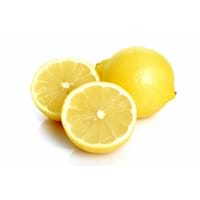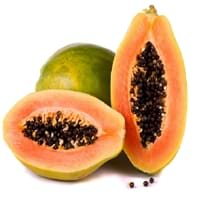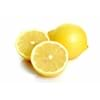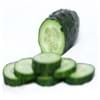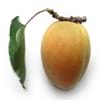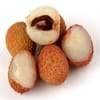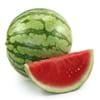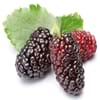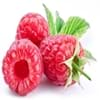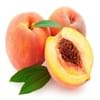Health Benefits
Arthritis treatment, Asthma treatment, Cancer prevention, Kidney stone treatment, Prevents constipation, Purging blood, Treatment of rheumatism
Arthritis prevention, Asthma treatment, Cancer prevention, Heart care, Prevents macular degeneration, Prevents rheumatoid
General Benefits
Boosts immune system, Cures headache, Cures fever, Digestive aid, Flu treatment, Maintains healthy cholesterol level, Treatment of common cold
Anti-inflammatory properties, Boosts immune system, Digestive aid, Healing of wounds, Maintains healthy cholesterol level, Strengthens bones
Skin Benefits
Heals sunburn, Reduces wrinkles, Skin rejuvenation, Treatment of acne, Treatment of skin diseases
Anti-aging benefits, Hydrates skin, Skin revitalization, Treatment of acne, Treatment of dark spots
Hair Benefits
Prevents hair loss, Treatment of dandruff
Good conditioner, Promotes longer and healthier hair, Softening mask, Treatment of dandruff
Allergy Symptoms
Eczema, Hives, Inflammation, Itching, Skin rash, Swelling
Abdominal pains, Carotenemia on excessive consumtion, Latex Allergy
Side Effects
Diuretic effects, Heart burn, Tooth decay, Chances of sunburn
Allergic reaction, Skin problems, Possibly unsafe during pregnancy
Best Time to Eat
Along with meal, Best to drink lemon water on an empty stomach., Don't consume at night and before bed
As a snack in the late afternoon, Don't consume at night and before bed, Don't eat after meal
Vitamin B5 (Pantothenic Acid)
Vitamin C (Ascorbic Acid)
Vitamin K (Phyllochinone)
Calories in Fresh Fruit with Peel
Not Available
Not Available
Calories in Fresh Fruit without Peel
Type
Citrus, Tree fruit
Melon, Tree fruit
Season
All seasons
All seasons
Varieties
Avalon Lemon, Bears Lemon, Buddha's Hand, Bush Lemon, Citron, Eureka Lemon, Dorshapo Lemon, Finger Citron and Fino Citron
Coorg Honey Dew, Pusa Dwarf, Pusa Giant, Pusa Majesty, Pusa Delicious, Pusa Dwarf, Solo, Ranchi, Taiwan-785 and Taiwan-786
Color
Yellow, Yellowish-orange
Orange, Yellow
Inside Color
Yellow
Orange
Taste
Sour
Luscious, Sweet
Origin
China, India
Mexico, Central America
Soil Type
Well-drained
Rocky, Sandy, Well-drained
Climatic Conditions
Hot, Sunny
Warm, Without frosts
Facts about
- Oil extracted from lemon peels is used for fingerboard of guitars.
- During Renaissance, ladies used lemons to redden their lips.
- Aroms of lemon decreases the level of stress hormones.
- Papaya seeds show contraceptive effects in male monkeys.
- Their seeds are used as a replacement for black pepper in some nations due to peppery taste.
- Papaya is known by funny names like paw paw or papaw and the mamao.
Other Countries
Argentina, Brazil, India, Iran, Italy, Mexico, Spain, Turkey, United States of America
Brazil, Indonesia, Mexico, Nigeria
Top Importer
United States of America
United States of America
Top Exporter
Mexico
Mexico
Botanical Name
Citrus limon
Carica papaya
Synonym
Not Available
Not Available
Subkingdom
Tracheobionta
Tracheobionta
Division
Magnoliophyta
Magnoliophyta
Class
Magnoliopsida
Magnoliopsida
Subclass
Rosidae
Dillenhidae
Order
Sapindales
Brassicales
Family
Rutaceae
Caricaceae
Species
C. limon
C. papaya
Generic Group
Citrus fruit
Papaya
Difference Between Lemon and Papaya
We might think that Lemon and Papaya are similar with respect to nutritional value and health benefits. But the nutrient content of both fruits is different. Lemon and Papaya Facts such as their taste, shape, color, and size are also distinct. The difference between Lemon and Papaya is explained here.
The amount of calories in 100 gm of fresh Lemon and Papaya with peel is Not Available and Not Available and the amount of calories without peel is 29.00 kcal and 43.00 kcal respectively. Thus, Lemon and Papaya belong to Low Calorie Fruits and Low Calorie Fruits category.These fruits might or might not differ with respect to their scientific classification. The order of Lemon and Papaya is Sapindales and Brassicales respectively. Lemon belongs to Rutaceae family and Papaya belongs to Caricaceae family. Lemon belongs to Citrus genus of C. limon species and Papaya belongs to Carica genus of C. papaya species. Beings plants, both fruits belong to Plantae Kingdom.
